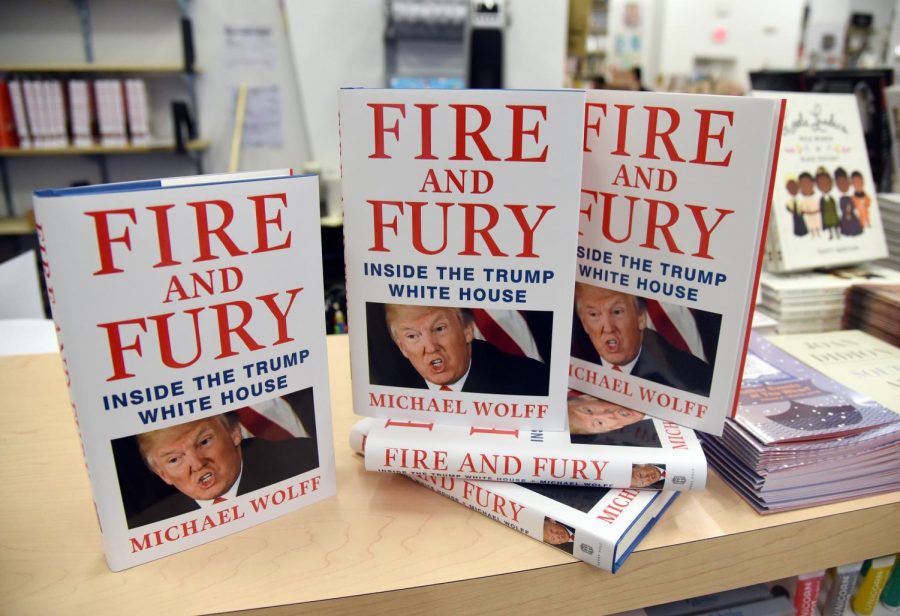Michael Wolff’s “Fire and Fury” is without a doubt the most talked about book of the new year, and for good reason: it holds no prisoners and purports to be a tell-all of President Trump’s first year in office. Originally conceived as a story that would encapsulate Trump’s first 100 days, Michael Wolff has—in many ways—outdone himself with, in many respects, a damning account of the Trump White House. In fact, it makes perfect sense that the antics of the current administration are anything but boring.
“Fire and Fury” isn’t a hit piece; it is hard to view the book as anything more than well-written tabloid gossip, a behind-the-scenes look at Trump’s behavior and his inner circle’s reaction to it; we don’t learn much more about Trump than what the media reports. However, the narrative Wolff chronicles is important nonetheless. “Fire and Fury” is written as a story and the devil is in the details.
What Wolff is best at is providing a timeline for when key campaign—and eventually presidential—events took place. He is tremendously successful at simplifying Trump’s ascent, as well as the surprise, and—to some degree—the dismay of the people around him, along with his sheer lack of incompetence in every sense of the word.
Very few assumed that Trump had any understanding of policy, both as a candidate and now as president. The book reaffirms that assumption: “and to say that he knew nothing—nothing at all—about the basic intellectual foundations of the job was a common understatement.” In addition to this, it was also clear that Trump’s team were no-nothings as well. But again, this is nothing new. People voted for Trump because of his Washington-outsider status. Trump’s plutocratic persona was the key to his viability as a candidate in the eyes of many people. Bringing in key members of his family to take unpaid positions in the administration—Jared Kushner and Ivanka Trump—only reaffirmed this hypothesis. Is it necessary to know that Kushner is a pushover when he steps on Trump’s toes during a conversation with Joe Scarborough and Mika Brzezinski? Not really. How about the use of “Morning Joe” as a launch pad for Trump’s campaign—not to mention the insider status that Brzezinski and Scarborough had in relation to Trump post-inaugurtion? Perhaps more so.
I knew before reading the book, as did many others, that Trump was surprised at his own electoral success. From Wolff, we learn that Bannon was the only one who was bizarrely confident in a Trump victory, when everyone around him was redefining the term “winning” to soften the blow of a lost election. This is perhaps the most interesting part of the book. Regardless of the outcome, Trump was building a bigger brand for himself. Running for president only helped enhance his name, regardless of the desired outcome.
Moreover, Wolff does an excellent job of providing a chronology of the medias behavior toward Trump; a relationship which began almost 30 years ago. Ironically, the media coverage of Trump in the past was conducted in a manner that never took him seriously. Wolff outlines the New York Observer and Spy magazine specifically, which chronicled Trump’s foolish celebrity status as a New York real-estate mogul in New York in the early 90s. However, the media behavior toward Trump during the last five years had been, in many respects, the opposite. As presidential aspirations switched from fantasy to reality, coverage that was once salacious quickly turned serious. Trump’s rise to the presidency, as Wolff correctly outlines, has a lot to do with the coverage he was given. Such coverage paled in comparison to other candidates.
For Trump, winning the presidency was unnecessary. In his eyes, losing meant that Hillary Clinton cheated. But it would also mean that he won. There was Trump the “person” and Trump the “brand.” Regardless of whether or not he viewed himself in this light, both personas would be winning.
Interestingly enough when reading, one understands that much of Trump’s behavior, especially when the election season drew to a close, was often predicated on the fact that he wasn’t going to become President. The Access Hollywood tape, or the campaign’s alleged behavior with the Russians, wouldn’t matter if Trump didn’t win; “he wouldn’t win” was the sentiment up until the eighth of November.
Trump is a man of the present. This much we understand. His loyalty extends to those who shower him with praise. He’s your best friend until you criticize him. It’s his way or the highway; in his mind, life is a simple game, one that he keeps on winning.
Isaac Simon can be reached at [email protected].














John AImo • Jan 31, 2018 at 9:35 am
The book was widely panned by journalists, including liberal journalists like Katy Tur; not only for it’s content but questionable veracity. It should be obvious, the book is basically gossip. It’s unverified gossip, rumors, personal opinions, anecdotes,etc.
For someone to take this serious and see it as a serious source to me suggest the person is of low intelligence or is willing to shamelessly exploit this book to bash a president they disagree with.